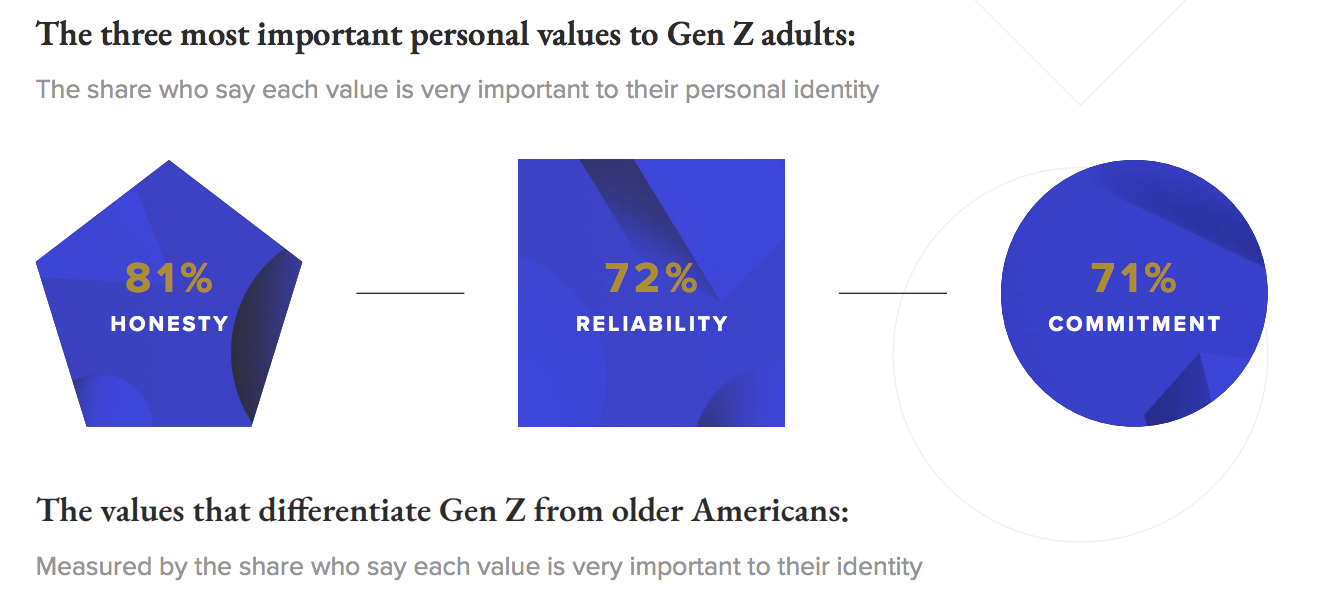Millennials are so last year—it's time to start thinking about Gen Z coming into the workplace.
Loosely defined as those born after 1995, Gen Z is made up of 61 million individuals in the U.S., says the U.S. Department of Labor. And, according to a report by Dell, by next year (2020), Gen Z will make up 20 percent of the workforce.
So, what do you need to know about Gen Z, also known as the iGen, and how to best work with this up-and-coming generation?
Keep It Convenient and Future-Forward
Gen Z grew up with the world at their fingertips. They didn't have to pull out an encyclopedia to gain knowledge—all they had to do was Google it. Two-day delivery and other seamless online shopping experiences are the norm for this generation, driving high expectations about convenience across all facets of their lives, says a report by Morning Consult.
To keep it convenient, Gen Z wants cutting-edge technology in the office—there's no messing around with that early 2000s fax machine for this tech-savvy generation. Eighty percent of respondents surveyed by Dell aspire to work with cutting-edge technology, and 91 percent said technology would influence a job choice.
Understanding What Gen Z Values Most
For the most part, what Gen Z holds near and dear is similar to that of older adults—honesty, reliability, and commitment, according to the report by Morning Consultant.

Those values, however, deviate from those of previous generations when it comes to how they are defined. Gen Z, for the most part, believes respect is earned, not given, and is likely to admire someone for their individuality and intelligence. Older adults are more likely to respect someone simply because they are an authority figure or because they are an elder, says the Morning Consult report.
Working on Soft Skills
Gen Z grew up swiping iPads before they could talk—they're not afraid of tech. But when it comes to soft skills and experience in the workforce, they start to get nervous.
It could have something to do with a lack of experience in the workplace in general. A recent article from Wharton/University of Pennsylvania says just 19 percent of 15- to 17-year-olds in 2018 reported working during the previous calendar year. Compared with the 30 percent of millennials in the same age group in 2002 who worked during the previous calendar year, that's a pretty significant drop.
To boot, only 57 percent of the iGen surveyed by Dell feel that their education prepared them for the workforce and 94 percent have concerns about starting work—but perhaps that last stat is to be expected as entering the workforce has been, and will probably always be, nerve-racking.
"There were some soft skills I had to learn on my own such as critical thinking and interacting with team members. That is something that is downplayed when we focus so much on using technology. We lose the interaction that we need to have with teammates and customers," 22-year-old Jahnavi Muppaneni who is studying corporate communications and journalism, told Dell.
Mutually-beneficial mentoring programs may help Gen Z start off on the right foot in the workplace. More experienced staff members can work with the younger generation on soft skills while Gen Z can assist others with technology training. In fact, 77 percent of the iGen are willing to be technology mentors to others at work and 75 percent expect to learn from peers on the job rather than online training, according to Dell's survey.
Wants from Employers
In addition to wanting the latest technology in the workplace, what else does the iGen value or look forward to having?
Gen Z most values job security (66 percent), salary (65 percent), and healthcare benefits (60 percent) when it comes to employment.
"On average, millennials are 6 points more likely than Gen Z adults to say factors relating to personal benefit, such as salary, are very important. When it comes to mission-oriented factors, such as environmental responsibility, Gen Z adults are 2 points more likely to say they are very important," said the Morning Consult report.
A report by Vision Critical even claims that Gen Z will take a high salary over a work-life balance. When asked "When it comes to your ideal job, what matters most to you most?" 65 percent of Gen Z chose salary and only 38 percent chose work-life balance. A stark deviation even from the closest generation of Millennials who chose 54 percent and 47 percent, respectively.
So What Now?
Truthfully, having a new generation in the workforce will be largely the same as previous experiences. However, having a better understanding of what is typically valued by each generation can help alleviate any tensions that may arise.
To learn more about Gen Z, check out these resources:
Make Way for Generation Z in the Workplace by Wharton/University of Pennsylvania
Research: The Gen Z Effect by Dell

